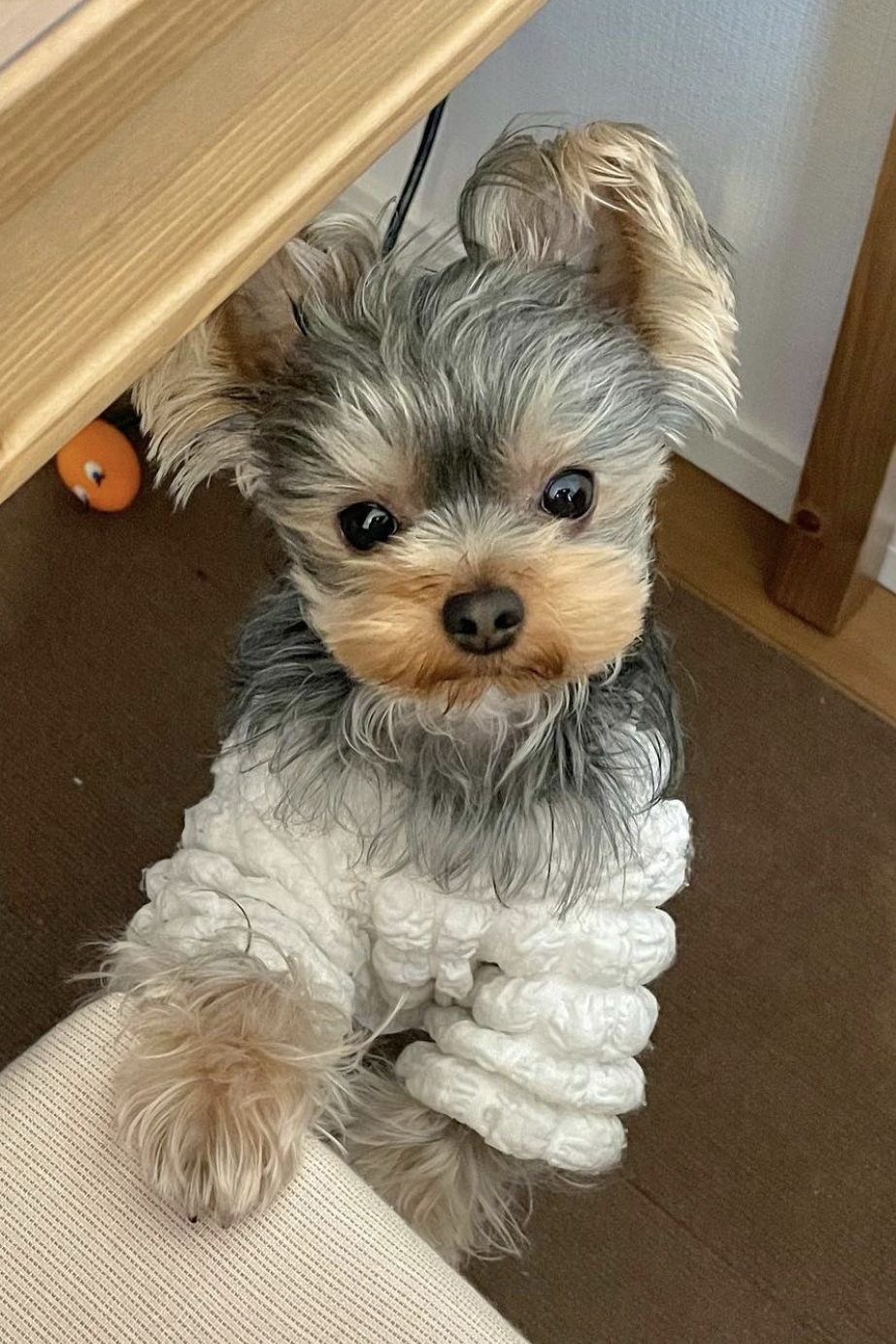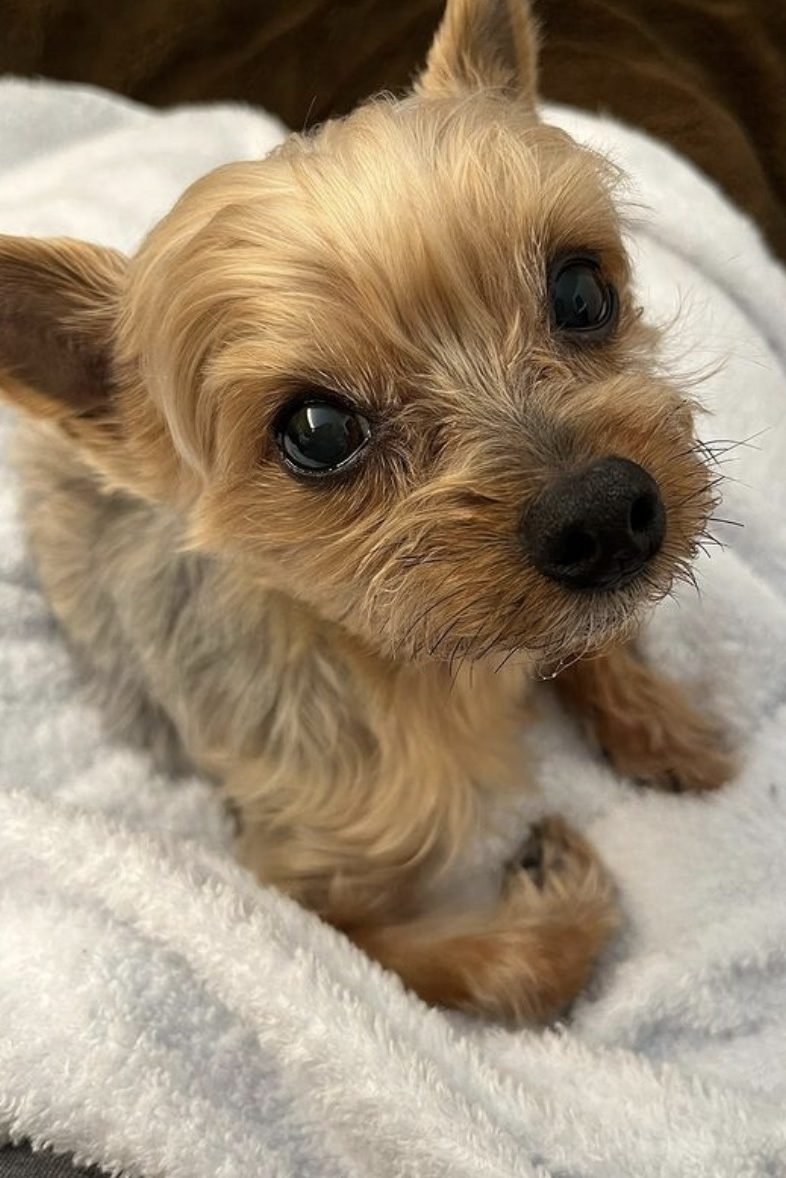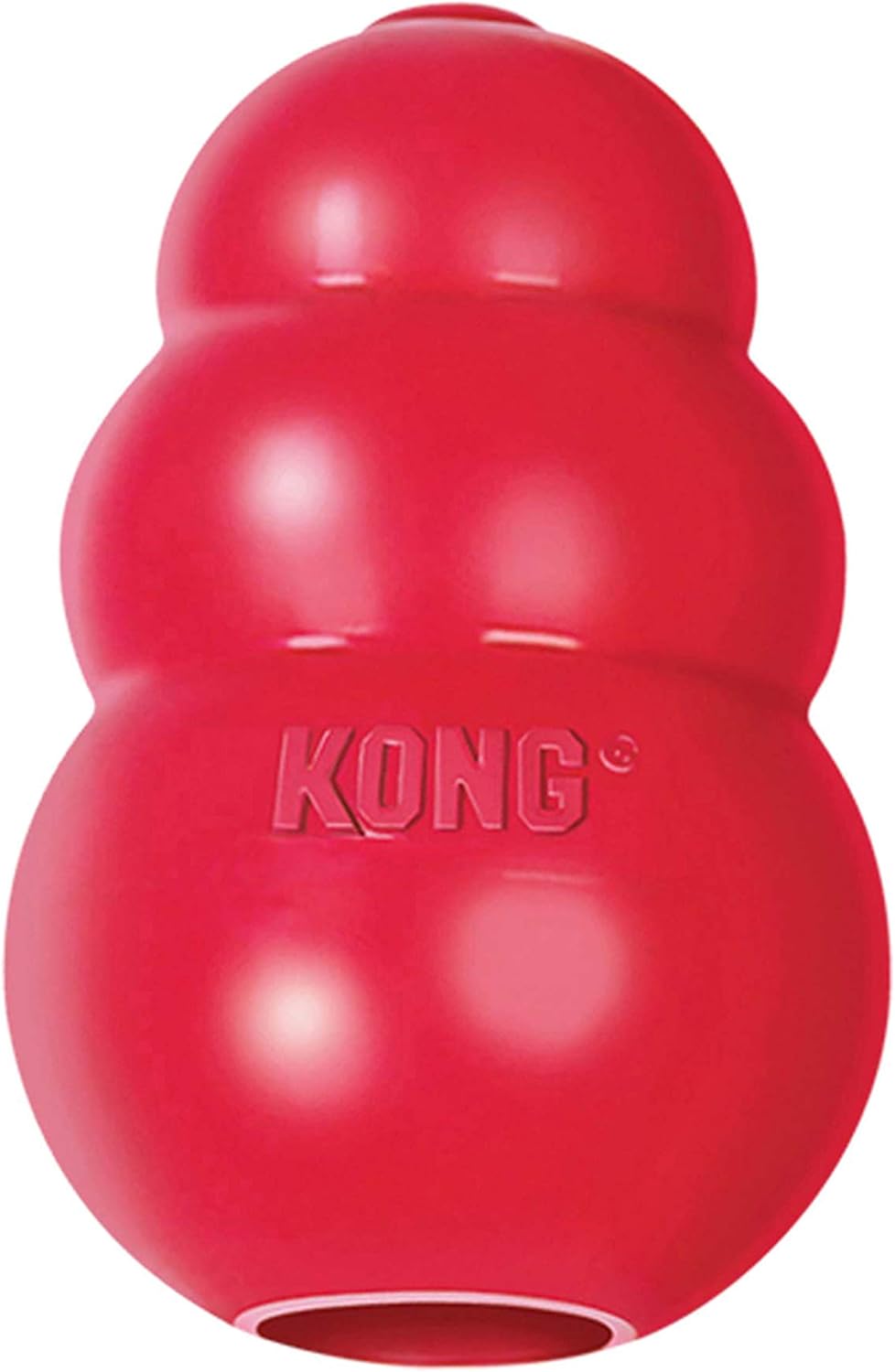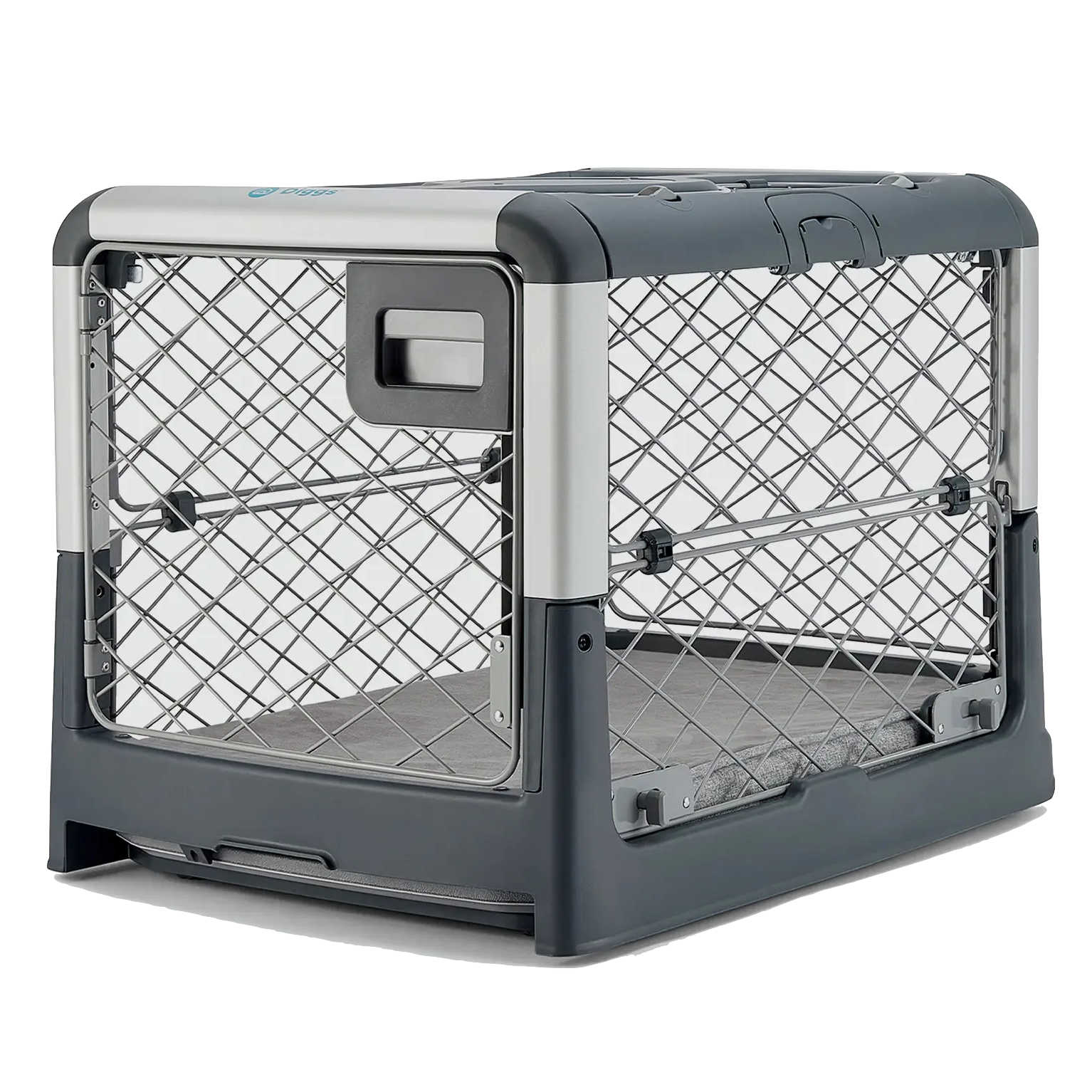Are Yorkies Hypoallergenic? (Allergy Sufferers Guide)

The Yorkie (AKA Yorkshire Terrier) is a small terrier known for its silky coat in tan, black or silver. With such long, luscious hair you might be wondering whether they are hypoallergenic dog breed or not.
If you are interested in knowing how hypoallergenic Yorkies really are, keep reading this article to find out the the answers to your all questions about this topic!
Table of Contents
Are Yorkies Hypoallergenic?
Yorkies are considered to be a hypoallergenic dog breed as they do not produce or release much allergy inducing dander into their immediate environment. They have hair instead of fur which is one of the reasons why they produce fewer allergens than other breeds. Smaller sizes of Yorkie e.g. Teacup Yorkies are considered to be more hypoallergenic than the standard size as smaller sized dogs produce a smaller quantity of dander.

Factors That Affect How Hypoallergenic Yorkies Are
The main factors that can affect how hypoallergenic a Yorkie is includes but is not limited to:
- Size (Teacup, Toy, Miniature or Standard)
- Whether they have been crossed with another dog e.g. Poodle or Maltese
- The individual dog
How Size Affects How Hypoallergenic Yorkies Are
All sizes of Yorkie are hypoallergenic but some consider the smaller sizes to be more hypoallergenic as they produce less dander due to their comparatively smaller size.
Are Teacup Yorkies Hypoallergenic?
Teacup Yorkies are hypoallergenic as they are very light shedders and do not release much allergy inducing dander (dead skin cells) into the environment when they shed. Some people consider Teacup Yorkies as the most hypoallergenic size as they are the smallest and therefore produce the least amount of dander compared to other sizes of Yorkie.
Are Toy Yorkies Hypoallergenic?
Toy Yorkies are considered to be a hypoallergenic breed as they do not shed much and thus don’t release much dander into their surroundings which can irritate allergy suffers. Toy Yorkies are the exact same size as Teacup Yorkies so they just as hypoallergenic as Teacup Yorkies.
Are Standard Yorkies Hypoallergenic?
Standard Yorkies are hypoallergenic like all sizes of Yorkie. They are hypoallergenic as they do not produce large quantities of dander which are dead skill cells that irritate allergy sufferers. To make a Standard Yorkies more hypoallergenic, keep brushing them every second day with a pin brush to remove old hairs.
Read Also: Toy Yorkie Guide: Lifespan, Price, Size, Temperament & More

Do Yorkies Shed?
Yorkies are light to non-shedders. They have a single coat so they do not undergo heavy seasonal shedding like double coated dog breeds. Yorkies only shed a few hairs here and there throughout the year, a similar amount to how much hair humans lose yearly.
Misconceptions About Hypoallergenic Dogs
1. “Dog Breeds Can Be 100% Hypoallergenic” (False!)
The term ‘hypoallergenic’ is often misused by breeders and pet shops. Many sellers of dogs suggest that ‘hypoallergenic’ means that their puppies are guaranteed to be safe for allergy sufferers but this is not the case at all. No dog can be 100% hypoallergenic as all dogs shed and release dander into their immediate environment. The question really is how much dander they produce throughout the year.
2. “Dog Fur/Hair Is Responsible For Allergies” (False!)
Dog fur or hair is not responsible for allergy symptoms. Many people think that dogs that are hypoallergenic don’t shed but this isn’t true. In fact, dog hair or fur is harmless but dander is not.
Dander is composed of dead skin cells that have flaked off a dog’s skin and have become airborne. It’s one of the leading causes of allergies symptoms but not the only one.
People are also allergic to proteins in dog saliva, urine and feces. These proteins may get all over a dog’s fur from them licking themselves and playing with other dogs so when you touch a dog you may get a reaction. Dried saliva can also flake off a dog like dander and become airborne which may cause issues for allergy sufferers.
3. “All Dog Breeds Are Just As Bad As Each Other For Allergy Sufferers” (False!)
Not all dog breeds are just as bad as each other for allergy sufferers. While no dog is 100% hypoallergenic, many breeds are much more hypoallergenic than others. For example, Poodle mixes are much more hypoallergenic than a lot of purebred dogs.
In more cases than not, it comes down to the individual dog rather than the breed as a whole as to whether or not they are suited to allergy sufferers. One dog may produce lots of allergy causing proteins while another dog from the same litter may not. At the end of the day, you have to spend time with puppies and see if any of your symptoms flare up.
Some people also believe that smaller breeds are more suited to allergy sufferers than large dog breeds. While this isn’t proven, it makes some sense as small breeds produce everything in smaller quantities. Less dander, less shedding, less saliva etc. If you are an allergy sufferer, getting a toy or miniature sized dog rather than a standard one may be a good move.
Of course, consult your doctor about your allergies before purchasing a dog.
Read Also: Yorkie-Poo Size Guide (Micro, Teacup, Toy & Standard)

Causes Of Dog Allergy Symptoms
Dog allergy symptoms are usually caused by dander which is composed of tiny particles of skin shed by dogs along with a bit of their fur. It can be really problematic as dander is so small and can linger in air for long periods of time.
Allergy symptoms can also flare up from the proteins founds in dog saliva, urine and feces. Like dander, dried saliva can flake off a dog’s skin or fur and become airborne which is problematic for allergy sufferers.
Dog Allergy Symptoms
Dog allergy symptoms varies depending on your level of exposure and the severity of your reaction. The most common symptoms one can experience from coming into contact with a dog include:
- Coughing
- Sneezing
- Runny nose
- Red, itchy or watery eyes
- Skin rash
- Chest tightness
- Shortness of breath
- Wheezing
Read Also: Yorkie Poo Colors Guide (Black, White, Brown, Merle, Red etc.)

How To Reduce Allergens From Your Yorkie
If you do not suffer from severe or life-threatening allergies, there are many ways you can reduce the allergens your Yorkie produces so you can still happily live together.
1. Groom Your Yorkie Regularly
Regularly grooming your Yorkie will prevent them from releasing as many allergens into your home. Your dog’s grooming routine should include both brushing and bathing. It’s best to use a double sided pin and bristle brush on a Yorkie every other day to remove any loose hairs. As for bathing, you should give them a bath every 3 months to remove any dead skin cells, dirt and debris. This may not seem that often but you don’t want to over wash your Yorkie otherwise their coat will dry out which will only cause flaky skin.
2. Clean Your Home Frequently
Cleaning your home regularly will remove allergens from surfaces. It’s much easier if you have hard surface floors like floorboard or laminate as dander can wedge itself into carpet and be very difficult to remove. Invest in a high quality pet vacuum cleaner to make your life easier.
3. Regularly Wash Your Hands
Reduce your allergy symptoms by washing your hands every time after petting or playing with your Yorkie. This will stop you from accidentally touching your face with allergens on your hands.
4. Don’t Let Your Yorkie In Your Bedroom
If you suffer from allergies it’s best to keep your Yorkie out of your bedroom as you need somewhere to go to feel relief from your symptoms. While it may be tempting to let your Yorkie curl up with you at night in your bed, it’s best to have a place where there is no dander or dog fur around at all.
5. Invest In An Air Purifier
Investing in an air purifier is a good idea as it will remove allergens straight from the air as well as other airborne household pollutants like dust, pollen and mould spores. it will make your home a healthier environment for both yourself and your dog.
Further Reading
- Toy Yorkie Guide: Lifespan, Price, Size, Temperament & More
- Yorkie-Poo Size Guide (Micro, Teacup, Toy & Standard)
- Yorkie Poo Colors Guide (Black, White, Brown, Merle, Red etc.)
- Morkie Size Guide (Micro, Teacup & Standard)
- Morkie Lifespan Guide – How Long Do Morkies Live?
Our Top Picks: Must Have Dog Products!





What's Your Reaction?
Sophie Hamilton is the founder of PupTraveller. She is a dog expert with over 5 years experience in the pet industry where she has researched and written over 400 articles about dogs. Sophie is the go-to resource for dog owners and hopes to share her extensive knowledge of dogs with PupTraveller’s readers.



